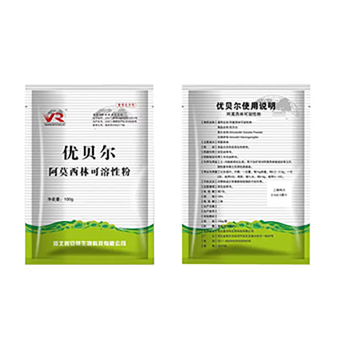- Afrikaans
- Albanian
- Amharic
- Arabic
- Armenian
- Azerbaijani
- Basque
- Belarusian
- Bengali
- Bosnian
- Bulgarian
- Catalan
- Cebuano
- Corsican
- Croatian
- Czech
- Danish
- Dutch
- English
- Esperanto
- Estonian
- Finnish
- French
- Frisian
- Galician
- Georgian
- German
- Greek
- Gujarati
- Haitian Creole
- hausa
- hawaiian
- Hebrew
- Hindi
- Miao
- Hungarian
- Icelandic
- igbo
- Indonesian
- irish
- Italian
- Japanese
- Javanese
- Kannada
- kazakh
- Khmer
- Rwandese
- Korean
- Kurdish
- Kyrgyz
- Lao
- Latin
- Latvian
- Lithuanian
- Luxembourgish
- Macedonian
- Malgashi
- Malay
- Malayalam
- Maltese
- Maori
- Marathi
- Mongolian
- Myanmar
- Nepali
- Norwegian
- Norwegian
- Occitan
- Pashto
- Persian
- Polish
- Portuguese
- Punjabi
- Romanian
- Russian
- Samoan
- Scottish Gaelic
- Serbian
- Sesotho
- Shona
- Sindhi
- Sinhala
- Slovak
- Slovenian
- Somali
- Spanish
- Sundanese
- Swahili
- Swedish
- Tagalog
- Tajik
- Tamil
- Tatar
- Telugu
- Thai
- Turkish
- Turkmen
- Ukrainian
- Urdu
- Uighur
- Uzbek
- Vietnamese
- Welsh
- Bantu
- Yiddish
- Yoruba
- Zulu
Dec . 29, 2024 01:33 Back to list
Ivermectin Injection Use and Safety Guidelines for Cats
Ivermectin Injection for Cats A Comprehensive Guide
Ivermectin is a widely used antiparasitic medication that is effective against a variety of internal and external parasites. Originally developed for use in livestock, it has found its way into veterinary medicine as a treatment for dogs and, more recently, for cats. While it is often used in a topical formulation for felines, the injectable form of ivermectin provides an alternative method of administration that can be particularly beneficial in certain clinical situations.
What is Ivermectin?
Ivermectin is a member of the macrocyclic lactone family of compounds, which are derived from the bacterium Streptomyces avermitilis. Its mechanism of action involves binding to specific channels in the nerve and muscle cells of parasites, leading to paralysis and death. In veterinary medicine, ivermectin is primarily used to treat infestations of parasites such as heartworms, roundworms, ear mites, and other ectoparasites.
Why Use Ivermectin Injection for Cats?
Injectable ivermectin can be advantageous in various scenarios. For instance
1. Severe Infestations Cats with heavy parasite loads may require a more aggressive treatment approach that injectable formulations can provide. The injection allows for rapid delivery of the medication into the bloodstream.
2. Poor Oral Absorption Some cats may have difficulty absorbing oral medications due to gastrointestinal issues or simply because they are finicky eaters. In such cases, intravenous or intramuscular injections ensure that the medication is effectively administered and absorbed.
ivermectin injection for cats

Safety and Dosage Considerations
Despite its effectiveness, ivermectin is not without risks. Cats are generally more sensitive to ivermectin than other animals, making careful dosage and monitoring crucial. It is important to note that not all cats should receive ivermectin; those with certain genetic mutations or pre-existing health conditions, such as liver disease, might experience adverse reactions.
The standard dosage for ivermectin in cats is typically lower than that in dogs, often being around 0.1 to 0.2 mg/kg when given as an injection. However, the specific dosage should always be determined by a veterinarian based on individual needs, the type of parasite being treated, and the overall health of the cat.
Potential Side Effects
While most cats tolerate ivermectin well, some may experience side effects, especially if given too much. Common symptoms include vomiting, diarrhea, lethargy, drooling, and in severe cases, neurological symptoms such as tremors or seizures. If you notice any adverse reactions after administering ivermectin, it is imperative to contact your veterinarian immediately.
Conclusion
Ivermectin injection can be an effective treatment option for specific parasitic infections in cats, particularly in cases of severe infestations or when oral administration is not feasible. However, it is essential for pet owners to consult with a veterinarian before starting any form of ivermectin treatment. Proper diagnosis and dosing tailored to the individual cat's condition will ensure the best outcomes while minimizing risks.
Veterinary expertise is crucial in managing treatment regimens that include ivermectin. By working closely with a veterinarian, you can provide your feline friend with the best possible care, ensuring that any parasite infestations are addressed effectively and safely. Always remember that while ivermectin is a powerful tool in the fight against parasites, responsible use is key to maintaining your cat's health and well-being.
-
Guide to Oxytetracycline Injection
NewsMar.27,2025
-
Guide to Colistin Sulphate
NewsMar.27,2025
-
Gentamicin Sulfate: Uses, Price, And Key Information
NewsMar.27,2025
-
Enrofloxacin Injection: Uses, Price, And Supplier Information
NewsMar.27,2025
-
Dexamethasone Sodium Phosphate Injection: Uses, Price, And Key Information
NewsMar.27,2025
-
Albendazole Tablet: Uses, Dosage, Cost, And Key Information
NewsMar.27,2025













